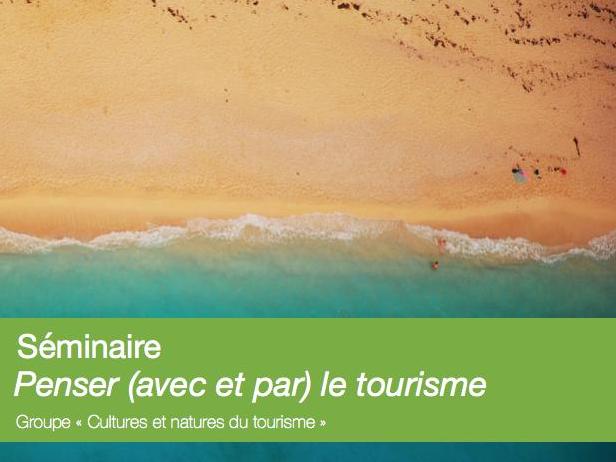English Français
From overtourism and climate change to recessionary pandemics and resilience: a conceptual discussion
Dans le cadre du séminaire « Penser (avec et par) le tourisme ».

Thursday 24 November 2022 - 14h00 to 16h00
Online via Zoom
As an activity strongly relying on mobility and personal interactions, tourism received a strong negative impact from the covid-19 pandemic, with severe implications on local and regional economic performances, with the related social implications. On the other hand, the role of tourism contributing to reinforce the negative consequences of the pandemic is also documented in recent studies. These bi-directional effects have different magnitudes in different locations, thus requiring a comprehensive approach that considers a wide range of factors, both in terms of the past and current negative impacts, and mostly in terms of the potential paths for recovery. In spite of the limited time passed since the emergence of the pandemic, a large number of studies recently addressed these problems, eventually contributing to support adequate strategies for the resilience of tourism dependent regions. In the case of this activity, it is noteworthy that we could witness a sudden shift from a discussion highly influenced by the idea of "over tourism" and the related social and environmental problems on destinations, to a discussion about "no tourism", with strong concerns about other type of social and economic impacts. Although the environmental questions related to climate change or the scarcity of non-renewable resources (like fuel, an especially important input for tourism) were not properly addressed, the economic recession imposed by the pandemic in many tourism-dependent local economies reinforced the pressure for a recovery of mass tourism, rather than a reorientation of tourism activities for less harmful practices. In this discussion, I critically assess and systematize recent contributions on these topics, with the aim of providing relevant insights and inputs for evaluation and planning of the relations between tourism dynamics, the covid-19 pandemic and the socio-economic resilience of tourism-dependent regions, in a context where the calls for climate action meet the pressure for urgent economic recovery.
Keywords: Tourism; Covid-19, Resilience, Climate Change, Sustainability
Bio
João Romão is Associate Professor at the Department of International Tourism and Business of Yasuda Women's University (Hiroshima) and a guest lecturer on Economic Geography of Tourism in other two Japanese Universities (Hiroshima and Hokkaido). He is also a co-chair of the cluster on leisure, tourism and recreation of the Network on European Communications and Transport Activities Research (NECTAR). He holds strong research and consultancy experience in tourism, urban planning, regional development and spatial econometrics. He also has brought many contributions on tourism sustainability, economic impacts and social resilience of tourism and regional economies. He notably published in 2018 the resourceful book “Tourism, Territory and Sustainable Development: Theoretical Foundations and Empirical Applications in Japan and Europe” (Springer), among more than 50 publications on economic and spatial aspects of tourism.
Registration for the zoom link
https://framaforms.org/inscription-au-seminaire-penser-avec-et-par-le-tourisme-registration-to-the-seminar-thinking-with
Institut de géographie et durabilité